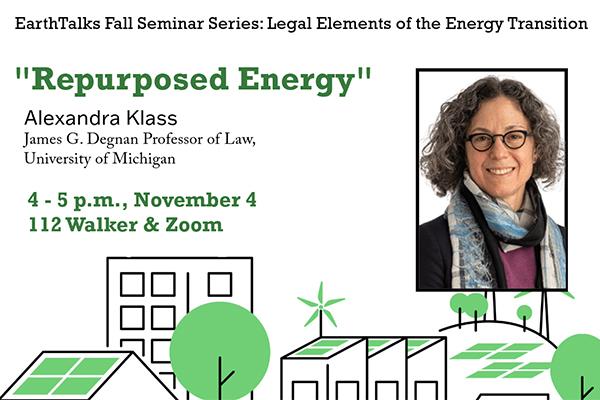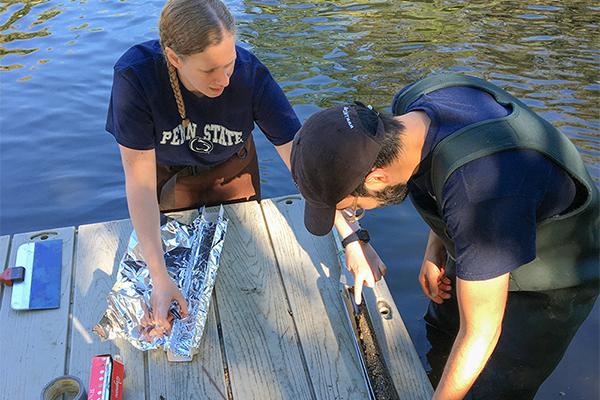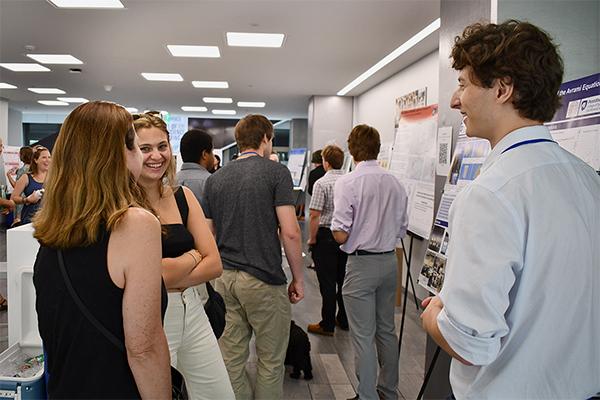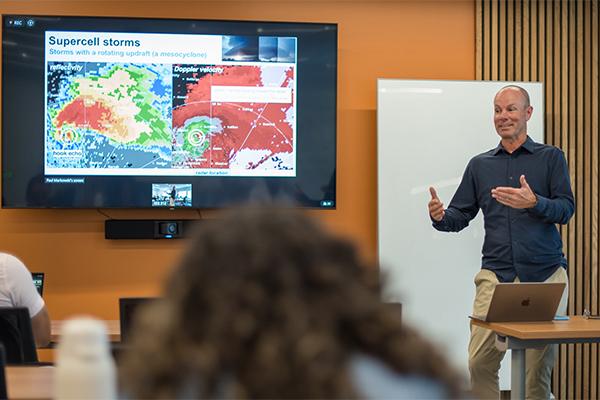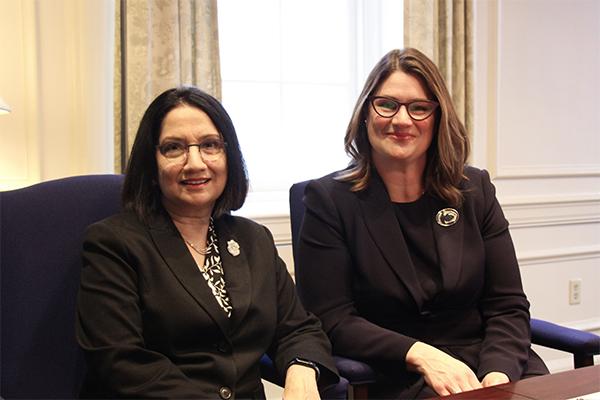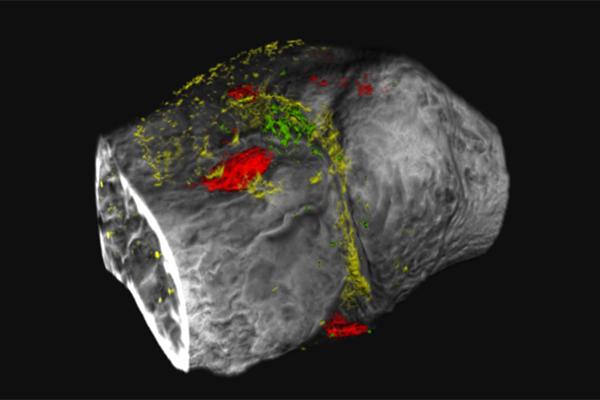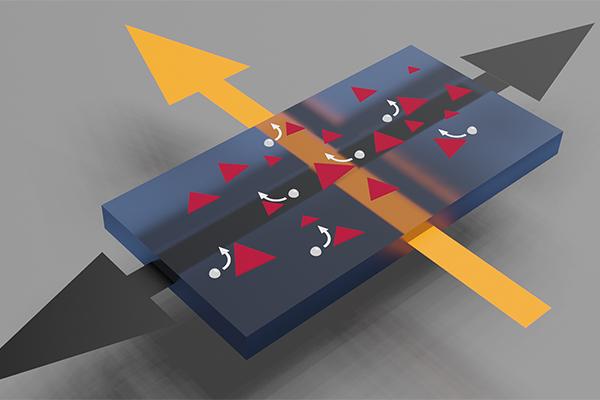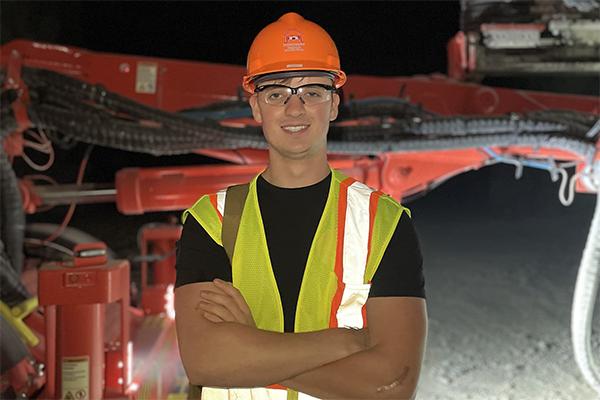Alexandra Klass, the James G. Degnan Professor of Law at the University of Michigan, will give the talk, “Repurposed Energy,” at 4 p.m. on Monday, Nov. 4, in 112 Walker Building on the University Park campus.
Microplastics have been steadily increasing in freshwater environments for decades and are directly tied to rising global plastic production since the 1950s, according to a new study by an interdisciplinary team of Penn State researchers.
Sheila Olmstead, professor at the Brooks School of Public Policy at Cornell University, will give the talk, “Do Dams and Groundwater Mitigate Drought’s Economic Impact?,” at noon on Wednesday, Nov. 6 , in 157 Hosler Building.
Penn State's 2024 U.S. National Science Foundation-funded Climate Science Research Experiences for Undergraduates (REU) ended on a successful note, with 16 students presenting posters on their summer research projects.
EMS sponsored a three-day hybrid workshop that brought together weather experts and stakeholders from across the globe to address challenges related to weather related hazards.
Penn State has named Morgan Advanced Materials, a global manufacturer of ceramics and carbon materials, as its 2024 Corporate Partner of the Year.
Researchers developed novel contrast agents that target two proteins implicated in osteoarthritis, a degenerative joint disease commonly characterized as wear-and-tear arthritis.
Penn State’s Cocoziello Institute of Real Estate Innovation has awarded its inaugural seed grants. John Mauro and Seth Blumsack are among the recipients.
The Hall effect, has revealed some new tricks, which has potential implications for understanding fundamental physics of quantum materials and developing applied technologies such as quantum communication and harvesting energy via radio frequencies.
Joshua Hasenau, a third-year Penn State student has asummer internship with the New Enterprise Stone and Lime Company, a construction company that produces aggregates, asphalt and concrete.


